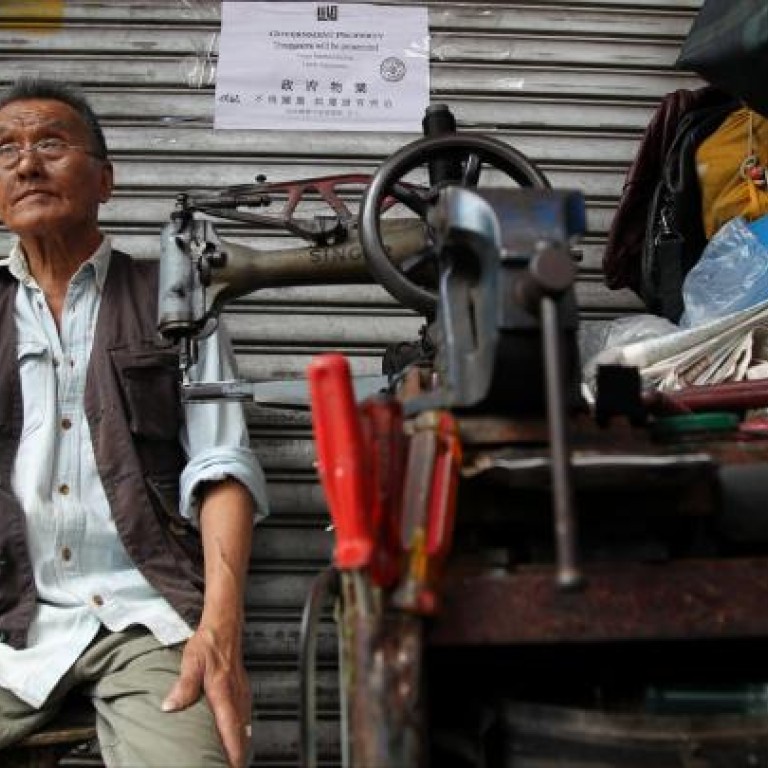
Kwun Tong alley shopkeepers stand their ground against URA
Kwun Tong alley business owners won't make way for project despite offers of compensation
Three months before a deadline to move out, 28 small businesses in a Kwun Tong alley stand in the way of the Urban Renewal Authority's biggest project ever.
The businesses, in their makeshift shops in Yan Shun Lane, are among the last holdouts in the Kwun Tong town centre redevelopment area.
Their negotiations with the authority are in a stalemate after they rejected an offer of help to rent space in several East Kowloon markets.
They have also rejected being labelled "illegal occupants of government land", saying they built and bought the shops with their own hands and money. Most residents and shop owners in the area have accepted compensation and moved out.
The authority says it agrees that the lane businesses deserve special attention, but wants them out by June. "We are working hard to figure out a solution and to avoid a mass eviction," a spokesman said.
The businesses, ranging from hairdressing to air-conditioner maintenance, have operated in the secluded alley for decades.
After two years of negotiation, the authority last month offered the group a tailor-made tender to bid for vacant units in markets managed by the Food and Environmental Hygiene Department.
But none of the Yan Shun Lane shop owners made a bid.
Air-conditioner repairman Ngai Man-wing said the offer was of no use to him because his type of business was not allowed in public markets. "The department asked me to become a renovation worker instead while moonlighting in my old job," he said. "How can this be?"
The authority has also offered the shop owners subsidies of about HK$50,000 if they bid for the market units.
But Ngai said the talk of money missed the point. "All I need is a small space to store the equipment and do welding. Just let me go on working," he said.
He would have difficulty affording the rent in a public market, the repairman said. He was not aware that his shop stood on government land when he bought it for HK$40,000 in 1992.
Even if they let me, the market unit is so tiny, only 40 sq ft. I can put in only a barber's chair
The offer of a unit in a market block is also of no help to Lai Chun-mui as his type of business - hairdressing - is also not allowed in public markets.
"Even if they let me, the market unit is so tiny, only 40 sq ft. I can put in only a barber's chair," said Lai, who is in his 80s, adding that he had to work to support himself and his sick wife.
Others in Yan Shun Lane are also unhappy with the offer, including a man who sells race pigeons and a woman who runs a beauty parlour, according to social worker Marco Lee Wing-kin, of Christian Family Service Centre.
Other businesses in their area would have been happy with the offer but did not get the option.
"Those people didn't bid for the market space, but I want it," said cobbler Ho Kei-sing, 74, who works in the street just outside Yan Shun Lane.
Now he continues to operate in the open air and frets over what to do with the ex-gratia compensation of HK$28,000.
Lee said such businesses were part of the unique history of Kwun Tong, which was dotted with hawkers in the 1970s. During a crackdown, some moved into fixed hawker markets and obtained a licence while others escaped into Yan Shun Lane.

